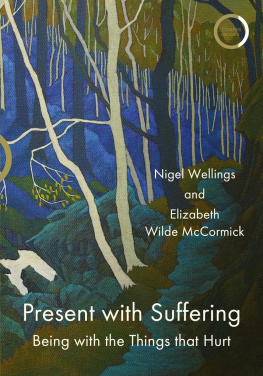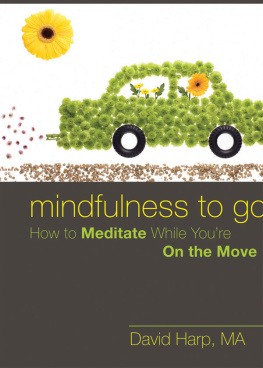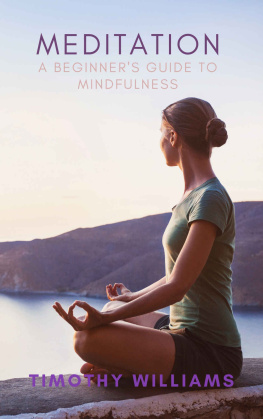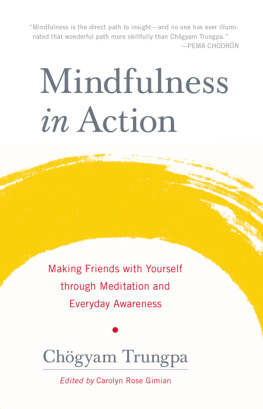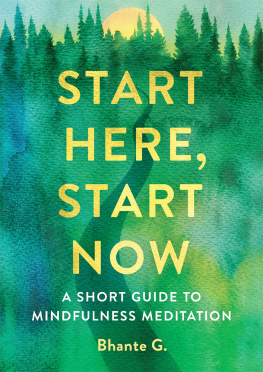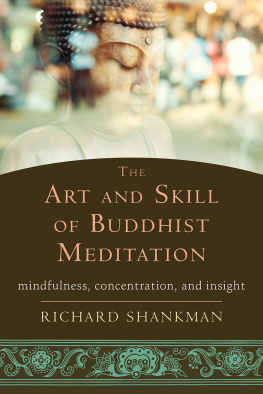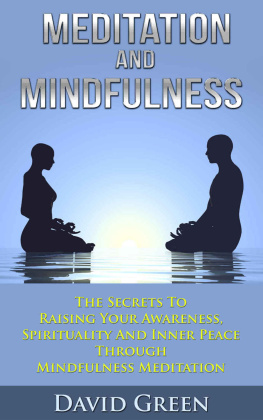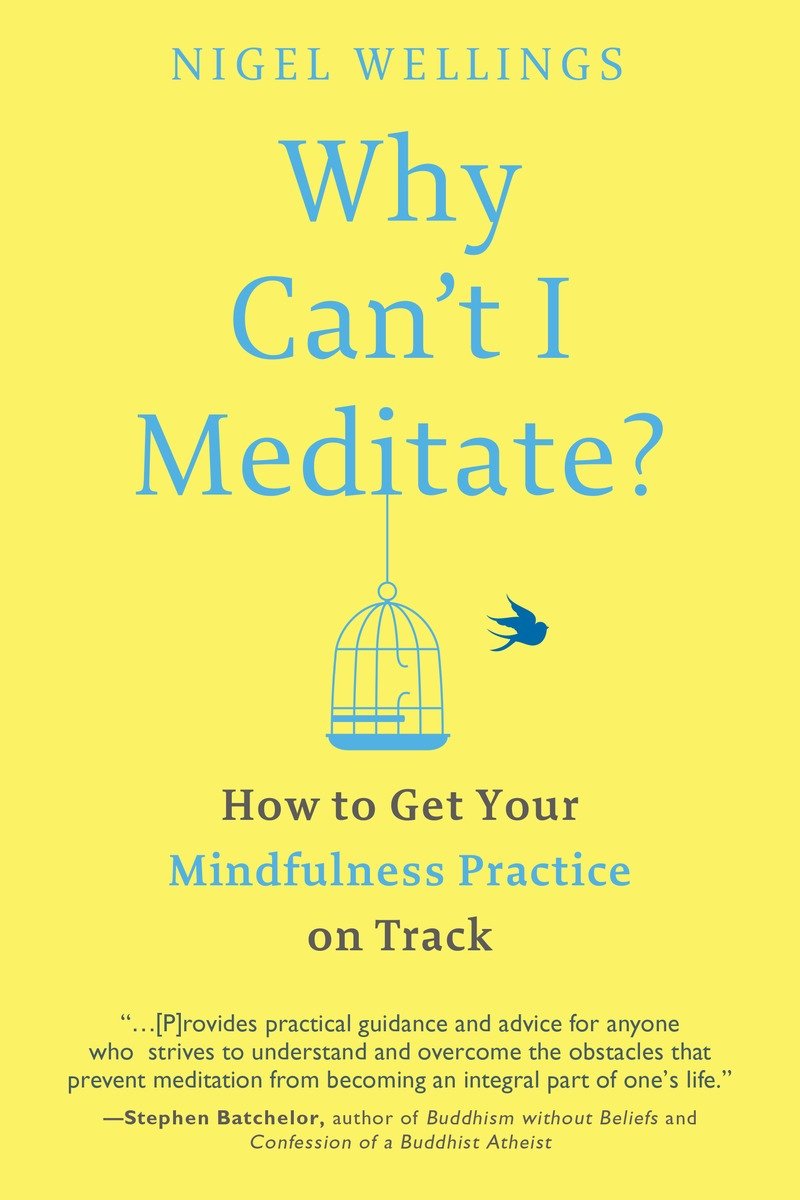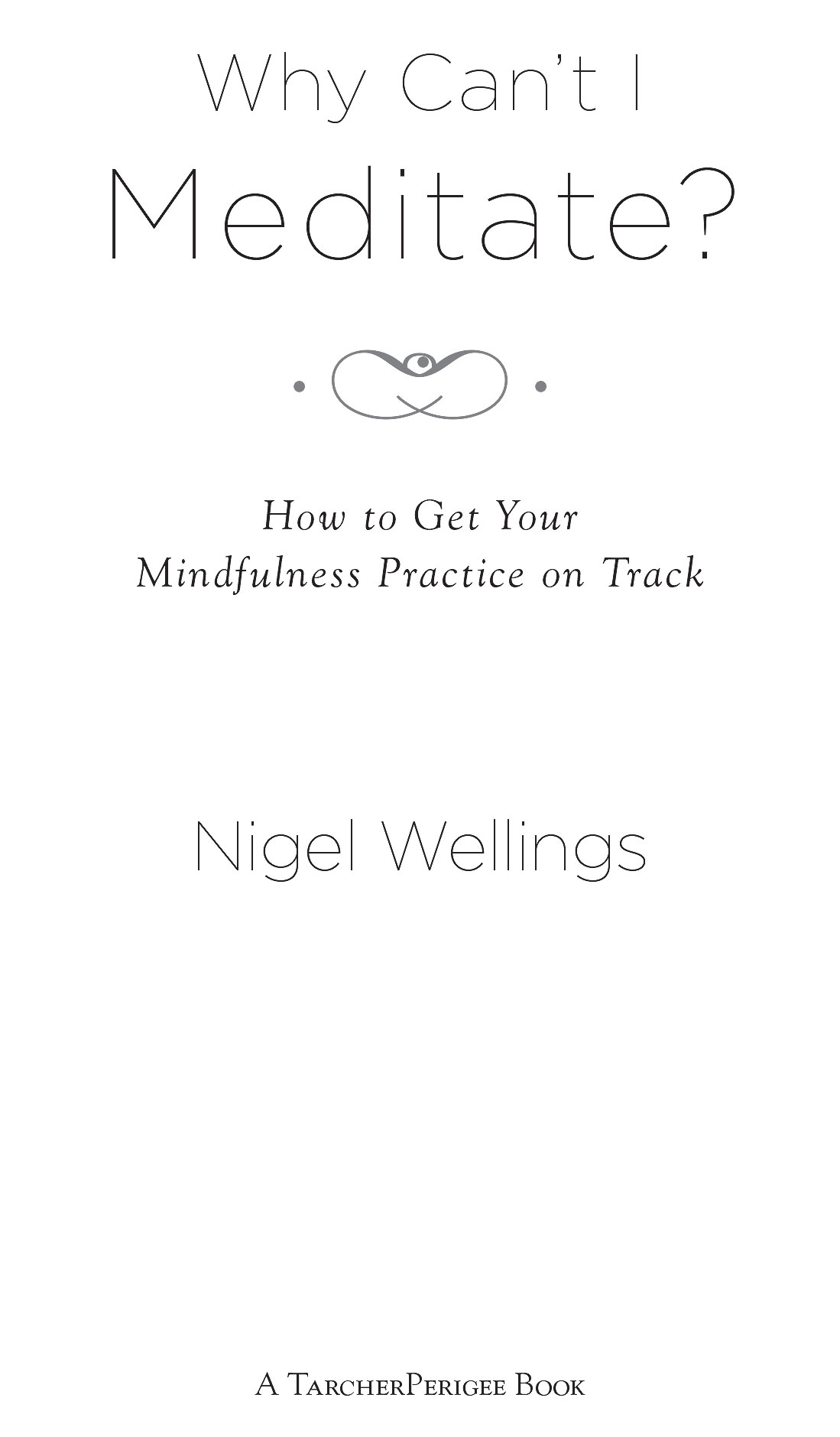Praise for Why Cant I Meditate?
Why Cant I Meditate? is, as far as I know, the first in-depth and pragmatic analysis of a key issue that bedevils many people who undertake the practice of meditation. It is not at all uncommon for someone to encounter a deep resistance to meditation even though they are sincerely committed to it. This important study is an invaluable handbook that provides practical guidance and advice for anyone who strives to understand and overcome the obstacles that prevent meditation from becoming an integral part of ones life.
Stephen Batchelor, author of Buddhism Without Beliefs and Confession of a Buddhist Atheist
I am very happy to finally see someone writing about why people cant meditate. Ive known Nigel for many years; hes a sincere practitioner who has been thinking about how to untangle the blockages in the human mind for some time now. We had a lot of discussion together about the ideas presented here and I think his book will be very useful. Its helpful to know the underlying causes of meditation problemsthis book shows how to work with them.
Tsoknyi Rinpoche, author of Open Heart, Open Mind
People learning mindfulness often ask, I know mindfulness practice is helpful; how can I best establish my meditation practice? Now I can recommend this wonderful book. Nigel Wellings offers insightful, compassionate, and eminently practical guidance, based on his extensive personal experience as a teacher and practitioner and interviews with some of the most accomplished mindfulness teachers in the field.
Willem Kuyken, professor of clinical psychology, University of Exeter
Insightful and helpful. I really like the discussion of the different selves within us and how one can be in conflict with another and that people who are fearful of unknown parts of themselves, their shadow, are going to struggle with compassion, becoming caught up in conflicts and struggles in contrast to observing them as natures mind at work.
Professor Paul Gilbert, PhD, OBE, author of The Compassionate Mind and Mindful Compassion
I especially appreciate the explicit kindness and compassion part of the book; its a beautiful chapter and it unpacks very nicely the threats that people feel when they give themselves love. As we say in the Mindful Self-Compassion program, When you give yourself unconditional love, you discover the conditions under which you felt unloved.
Christopher Germer, PhD, clinical psychologist and author of The Mindful Path to Self-Compassion
I would rate this book as essential reading for anyone who already has a meditation practice or for someone wanting to begin one. Reading it is like being in deep conversation with the authoran experienced and helpful person who really understands the process and pitfalls of meditationand also with many others who share their experiences with refreshing honesty. The text offers the reader details of the practicalities of meditation, such as how to explore motivation to start, where and how to sit or walk, and how often, and it also offers a deep understanding of the difficulties that can be encountered in a way that is compassionate, easily understood, and helpful.
Elizabeth Wilde McCormick, psychotherapist and author of Change for the Better

An imprint of Penguin Random House LLC
375 Hudson Street
New York, New York 10014
First published in the United Kingdom by Piatkus Books in 2015
First TarcherPerigee paperback edition published in 2016
Copyright 2015 by Nigel Wellings
Penguin supports copyright. Copyright fuels creativity, encourages diverse voices, promotes free speech, and creates a vibrant culture. Thank you for buying an authorized edition of this book and for complying with copyright laws by not reproducing, scanning, or distributing any part of it in any form without permission. You are supporting writers and allowing Penguin to continue to publish books for every reader.
Tarcher and Perigee are registered trademarks, and the colophon is a trademark of Penguin Random House LLC.
Most TarcherPerigee books are available at special quantity discounts for bulk purchase for sales promotions, premiums, fund-raising, and educational needs. Special books or book excerpts also can be created to fit specific needs. For details, write: SpecialMarkets@penguinrandomhouse.com.
eBook ISBN 9781101983577
Cover design by Jason Anscomb
Version_1
Nigel Wellings is a psychoanalytic psychotherapist and author who works within a broadly contemplative perspective. He first attempted to practice mindfulness in his late teens and has been engaged with the relationship between psychotherapy and meditation for the last forty years. With Elizabeth McCormick, he has published several books, including Nothing to Lose: Psychotherapy, Buddhism and Living Life. His essay With Buddha in Mind: Mindfulness-Based Psychotherapy in Practice was recently published in Crossroads in Psychoanalysis, Buddhism, and Mindfulness. He lives in Bath, England, and is a teacher on the Bath and Bristol Mindfulness Courses.
www.mindfulness-psychotherapy.co.uk
www.bath-bristol-mindfulness-courses.co.uk
May this be a bridge, a boat, a ship for all who struggle with their practice of mindfulness.
Contents
Foreword
T his important book goes to the heart of a crucial area of inquiry for anyone who aspires to bring mindfulness meditation into his or her everyday life. All who have engaged with a personal meditation practice will know that there is often a gap between the aspiration to do it and the reality of trying to practice it each day: everything in our life and values points us toward the importance of our practice, but there seem to be so many barriers that stop us from doing it.
In very skillful ways, Nigels book brings us back to the humanness of this conundrum. It offers a gentle reminder that it is natural to find practicing mindfulness challenging because it deliberately points us toward the awkward and painful truths, the contradictions, of our existence. When we commit to a daily practice, we find many moments when we waver between doing our chores, taking a bath, having a glass of wine, hanging out with friends and family, or choosing the seemingly crazy and counterintuitive option of sitting on our meditation cushion and settling into sensing the immediacy of oursometimes painfulexperience. How human it is to feel the strong pull toward familiarity, comfort, and pleasure and to avoid what is painful, raw, and tender. Yet through a mindful engagement with our experience, we can know the deep relief that comes from learning to live in accord with the way things really are. The deep, intrinsic sanity in the process of the practice returns us to what is essentially true about ourselves and the world. This book beautifully unpacks and explores this ambivalence and helps us to see it as the real territory of our practice. These moments of hesitation and doubt do not mean that we havent quite got it; they are the heart of our practice. Not wanting to meditate is not something outside of the practice but a natural part of the all-embracing inquiry that our practice essentially is. We mindfully include all our feelings, all our uncertainties, our reluctance to really engage, and settle into our practice, day to day, with a spirit of investigative curiosity.



